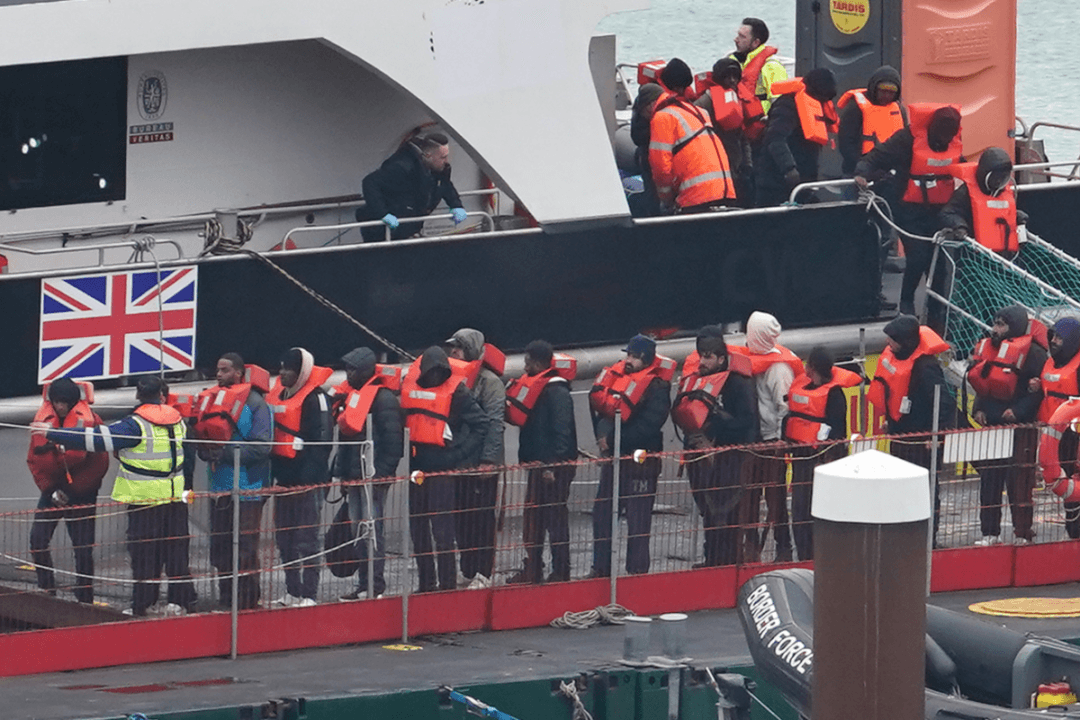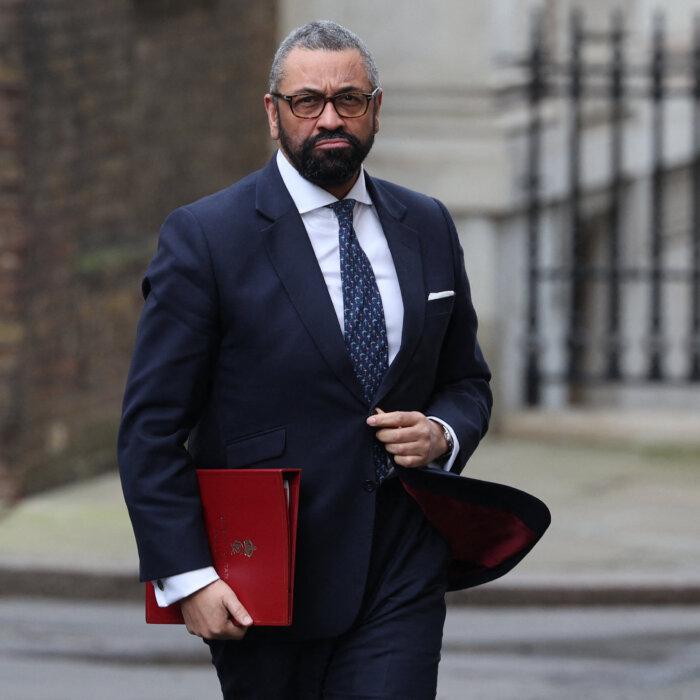A total of 3,208 migrants have crossed the English Channel in small boats so far this year, the highest running total for the same period since current records began in 2018.
According to figures released on Thursday, 225 migrants in five boats illegally came to Britain on Wednesday, to take the total for this period to its record level.
On Sunday, 327 arrived and a further 401 on Monday, the latter figure the highest daily total since the start of the year.
The number from Jan. 1 to March 6 is higher than last year, which saw 3,150 migrant arrivals during the same timeframe. It is also higher than in 2022—a record year for English Channel crossings—when 2,212 people arrived.
Annual Crossings Down More Than One-Third
Labour’s shadow immigration minister Stephen Kinnock said: “In January, Rishi Sunak and James Cleverly told us that small boat arrivals were down by a third. They said their plan was working, and they insisted that the reduction in crossings last year was nothing to do with the weather.“All those claims now look utterly ridiculous, and even worse, their complacency has left our country dangerously exposed and ill-prepared for what continues to be a record start to the year for small boat crossings.”
A Number 10 spokeswoman said that the government is “making progress and the plan is working,” adding, “We saw crossings down by more than a third last year.”
Downing Street said the rising crossings, however, pointed to the need to pass the government’s Safety of Rwanda (Asylum and Immigration) Bill to ensure a “deterrent effect.”
Dismantling Criminal Gangs Aiding Illegal Migration
The Downing Street spokeswoman also said that “while (the prime minister) is clear there is much to do and no one silver bullet when it comes to this issue, it is really vitally important that we pass this legislation and fundamentally break the business model of the criminal gangs.”Earlier this week Home Secretary James Cleverly—who set himself a target of meeting Prime Minister Rishi Sunak’s “stop the boats” pledge by the end of this year—held a meeting in Brussels where the UK and France agreed to lead a new customs partnership in a bid to disrupt the supply chain of parts used to assemble the boats migrants and criminal traffickers use to make Channel crossings.
On Monday, Mr. Cleverly announced that the UK and France would be launching the partnership straightaway and invited the other members of the Calais Group of northern European countries—Belgium, Germany, and the Netherlands—to hold discussions in detail in April in the hopes of them also joining the venture.
Agreements with European Partners
In February, the UK signed an agreement with the EU border agency, Frontex, on stopping migrant boats from crossing the English Channel.The deal will see increased cooperation between Frontex and the UK’s Border Force, including collaborations on training, joint operations, and the exchange of intelligence.
Helping Migrants Thrive at Home
The government’s multi-pronged approach to tackling illegal migration also includes suggestions for managing the situation at source.He encouraged countries to invest in international development as well as increase global trade in order to reduce some of the driving factors of migration. He also challenged counterparts to dismantle people-smuggling networks and to support countries that want to settle more refugees.
“Doing the right thing by someone in need doesn’t necessarily mean relocating them to our country. Central to solving the international migration challenge is doing more, collectively, to help people to stay and thrive at home,” the minister said.







